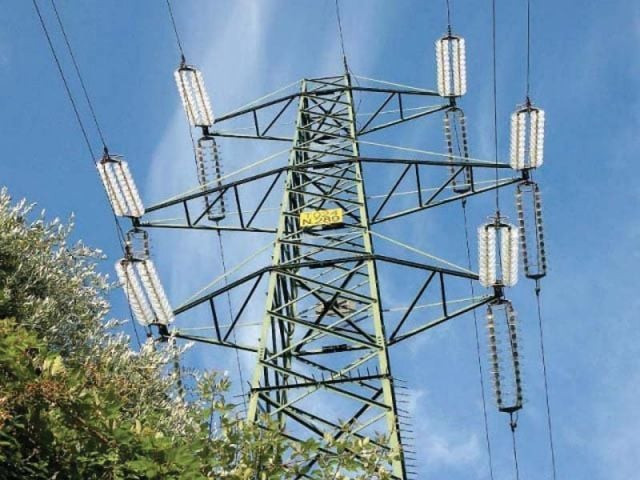Power sector directed to stop cooperating with PC
Decision comes at a time when financial advisers have been hired, investors have deposited fees for bidding process

The Ministry of Water and Power asked the Fesco management not to approach the Privatisation Commission or the financial advisers for Fesco transaction. PHOTO: AFP
In a final blow to the multibillion-dollar privatisation programme, the Ministry of Water and Power has stopped the management at power distribution companies from cooperating with the Privatisation Commission (PC) on the issue of seeking a revision in tariff rates - an issue that is critical for the strategic sale of a company.
The move will also dent the country’s credibility in the eyes of investors who had made business plans of taking part in the bidding process. Seven local and foreign investors have already deposited fees to take part in the privatisation of Faisalabad Electricity Supply Company (Fesco).
The Ministry of Water and Power gave directions to the management at Fesco in January this year, said officials.
IMF admits setbacks in privatisation process
The directions came at a time when financial advisers hired for privatising nine distribution and five power generation companies were seeking clarity on the status of privatisation. The advisers have been hired at an accumulative cost of Rs1.64 billion and there is growing concern in the Commission on how to deal with this issue, said officials privy to the discussions.
The officials said that the ministry asked the Fesco management not to approach PC or the financial advisers regarding filing of the review petition for the multi-year tariff to the National Electric Power Regulatory Authority (Nepra).
The revision of the Nepra-determined tariff was important for attracting investors. Under a condition of the International Monetary Fund, the Nepra determined the multi-year tariff of Fesco in January this year. Nepra rejected Fesco’s plea for an increase in power tariff and had instead slashed electricity price by Rs2.8 per unit for the next five years.
Fesco’s dilemma
At present, the Fesco’s privatisation process is on a halt. In November last year, the PC had invited expression of interests from prospective buyers and in response seven local and international parties had deposited $10,000 each with the PC.
In November last year, the officials said, the Ministry of Water and Power also conveyed to the PC that Prime Minister Nawaz Sharif had desired that Fesco’s privatisation process may be halted.
At a time when the premier and the Ministry of Water and Power were in process of reversing privatisation, the Ministry of Finance was giving assurances to the IMF on going ahead with Fesco’s privatisation. The privatisation of loss-making entities was one of the main goals of the $6.2 billion IMF programme.
PC suggests removing HEC from privatisation list
The IMF has also recently admitted that Pakistan’s privatisation programme “faced setbacks”. In addition to the IMF condition, the Asian Development Bank and the World Bank have also tied some loans with the privatisation of state-owned entities. A formal announcement by the government to roll back sector privatisation would also diminish chances of obtaining these loans.
Government’s questionable motives
The government carried forward the privatisation programme as long as it suited its interests. It raised $1.7 billion by selling stakes in the profitable entities but halted the process when the time came to privatise loss-making entities.
The officials also revealed that in November last year Prime Minister Nawaz Sharif verbally directed to halt the power sector privatisation. This was also disclosed by Minister for Water and Power Khawaja Asif during a meeting of an inter-ministerial committee, which was constituted to negotiate with the labour unions.
The due diligence of most power sector companies is at an advanced stage. The officials said there was an urgent need to take a decision on whether to continue Financial Advisory Services Agreements to save money.
There is a view that even if the government formally halts privatisation, the due diligence process of the companies should be taken to the stage of transaction structures.
Privatisation Commission Chairman Mohammad Zubair, while commenting on the issue, said that the Commission has written a letter to the Ministry of Water and Power to allow the financial advisers to complete their due diligence which will be helpful for future reform. “The commission is only an implementing arm and it is up to the government to decide which entity it wants to privatise and when.”
Published in The Express Tribune, April 17th, 2016.
Like Business on Facebook, follow @TribuneBiz on Twitter to stay informed and join in the conversation.



















COMMENTS
Comments are moderated and generally will be posted if they are on-topic and not abusive.
For more information, please see our Comments FAQ